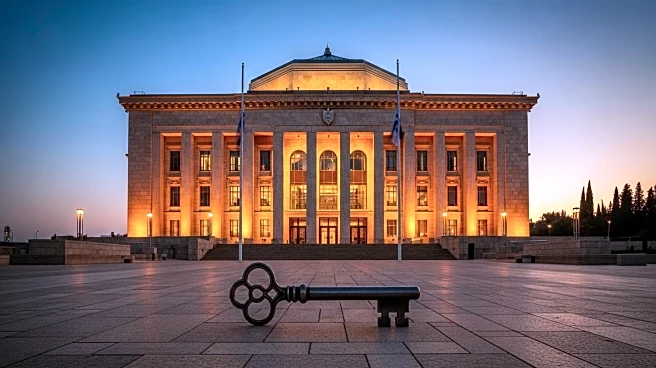What's Happening?
Preparations are underway for President Trump's historic address at the Knesset plenum in Israel. The visit coincides with the expected return of hostages held by Hamas, following a ceasefire agreement. A billboard in Tel Aviv displays images of key U.S. figures involved in the negotiations, including Secretary of State Marco Rubio and Special Envoy Steve Witkoff. The visit is part of a broader diplomatic effort to stabilize the region.
Why It's Important?
President Trump's visit to Israel marks a significant diplomatic event, potentially influencing U.S.-Middle East relations. The return of hostages and the ceasefire could lead to reduced tensions in the region, impacting geopolitical dynamics. The involvement of high-profile U.S. officials underscores the importance of the visit in advancing peace efforts. The event may also affect U.S. domestic politics, as it showcases Trump's foreign policy achievements.
What's Next?
Following the address, President Trump is expected to return to the U.S. without visiting other significant sites like the Western Wall. The focus will remain on the successful negotiation outcomes and their implementation. Stakeholders, including Israeli and U.S. officials, will likely continue diplomatic engagements to ensure the ceasefire holds and further peace initiatives are pursued.
Beyond the Headlines
The visit highlights the complex interplay of diplomacy and security in the Middle East. Ethical considerations regarding hostage negotiations and the broader implications for regional peace are significant. The event may set a precedent for future diplomatic engagements involving high-profile leaders and sensitive geopolitical issues.










